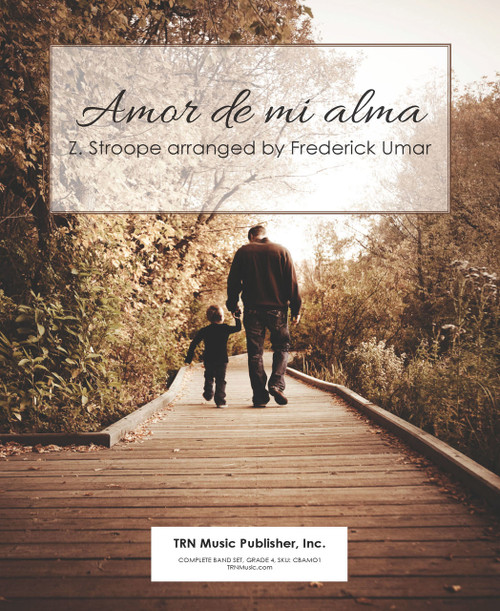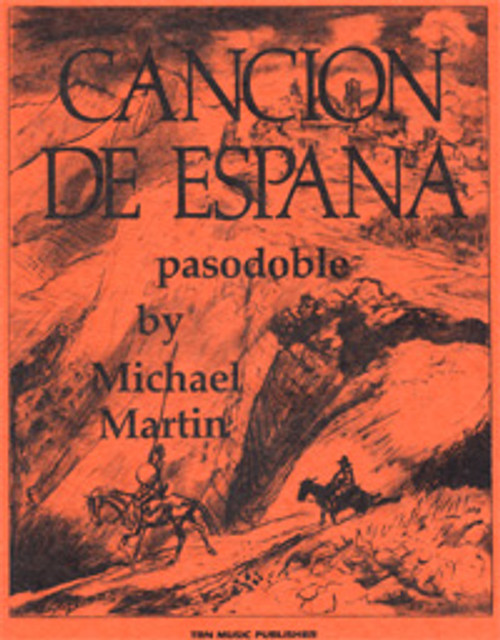DEDICATION
In the fall of 2009, I had the honor to study conducting, orchestration, and arranging under Takayoshi ‘Tad’ Suzuki - principal conductor of the TAD Wind Symphony (Japan) – when he was a member of the faculty and staff at the University of Nevada, Las Vegas (NV). From the moment we met, I was deeply moved by the passion with which he listened, arranged, and conducted music. Regardless of the genre, he seemed to be able to find the core emotions of the work – those moments that the composer or arranger set as ‘crucial to express’ for the success of the work at large. After many weeks of watching him convey these emotions with ease, I was compelled to ask him to teach me such an art. He obliged, and over the next two plus years, our lessons would begin and end with a parable or two – a story or life experience that seemed to convey a deeper meaning it was important I grasp. Some days, these parables were all we would discuss, as Takayoshi asked questions of me, seeking to see if I could convey those things profoundly between the words, the phrasing, the sentences, and the overall storyline. Once he was satisfied with my response, Takayoshi would ask me to conduct what I had just uncovered from the parable within a work. It changed the way I saw every composition. He would later expand upon this approach as he taught me to develop a sense of tonal texture and harmonic awareness in arrangements I would set for the wind band.
It was during one such lesson that Takayoshi shared a story I will never forget – this, involving his father. I was so moved by the passion, the respect, the sheer joy this man expressed toward his father. As I watched a single tear rolled down Takayoshi’s face, I was invited to see the heart of his father – the kindness, the gentleness, and the beauty of this father’s love for his child. I am still moved, remembering that day, the stories of his father, the sayings he expressed to Takayoshi, the respect, the honor he sought to bestow upon him through his musical expressions. That moment taught me more about the ‘Father – child’ relationship with God, through Jesus Christ, then any lifelesson I had ever learned. It also taught me the power, the magnitude of the role of a father on the lives of our children. They carry with them what we impress upon them – however good or bad – passing these things along to others, to their own. It therefore becomes an honor to teach them our ways, our deep love for them, in ways they can understand clearly. It is this ‘one thing’ that matters most. It is the single most important gift we can give our children.
This work is the result of those beautiful lessons together. The textures, the phrasing, the moments of anticipation and musical ‘awe’ you will experience reflect a depth of love we should all seek to experience, to reflect. I do so hope you are able to express these syllables in your own personal performance(s). If you truly wish to express the composer's and arranger's intent, it is these that should become the most important aspects of your performance.
It would be an honor to hear your ensemble perform this work. It is something I never tire of experiencing.
Takayoshi ‘Tad’ Suzuki is the only non-American-born member of the American Bandmasters Association.
PERFORMANCE NOTES
As an arranger and transcriber of choral works for the wind orchestra, the most important responsibility I find myself engaged in is setting the storyline through the instrumental textures. For me, these textures are no different than changing ones voice during a sentence, a phrase, or a comment. Equally still, silence, timing, patience entering and exiting a single passage, all have the ability to leave an audience breathless or confused.
Thus, if I may offer some suggestions for performance, they would be:
The tonal colors and textures work best if focus is based around the relationship between double-reeded instruments, the french horn, and the lower strings. It is strongly encouraged to have the saxophones blend within the horn or trumpet for which they are accompanying during performance. Only once throughout the work are the saxophones placed in a substantial role with the subject materials (mm.9-15). In all other sections, they are supportive, providing a 'string-like' color to the brass instruments. 3rd Clarinet has an equally staged position within the work.
Please ensure that time is given to mm. 40-53, which includes the English horn transition (mm.51-56). The message of the text associated with this work does not complete (nor create proper transitional elements) without pitch and textural integrity of all performing instruments. Equally so, the horns must ensure that the notes are sustained without waivering, including those moments when one might pass the duration of these notes onto another instrumentalist to carry it to completion.
Do not rush the phrasing or seek to reach the 'climax moments' without some sense of development within the ensemble. In the early stages of editing, I often heard conductors and their groups rush these moments, leaving the 'explosion' of textural beauty listless and without the power to move the heart to tears. You want these moments. You want them to build in the same manner one might gently, intentionally, emphatically, state the value of such personal love toward another from the depths of heart, mind, and soul. These are treasured and intentionally built into the work, meant to bring tear-filled gasps to all who experience in your audience. I liken these to the moments when we all first experience the effect we have had on another, those which move them to love us through all times, all seasons, all trials, without moving.
And, most important, take every care to convey the original text of this work. I have offered it forth as it is crucial to setting the performance:
Escrito está en mi alma vuestro gesto,
y cuanto yo escrebir de vos deseo;
vos sola lo escrebistes, yo lo leo
tan solo, que aun de vos me guardo en esto.
En esto estoy y estaré siempre puesto;
que aunque no cabe en mí cuanto en vos veo,
de tanto bien lo que no entiendo creo,
tomando ya la fe por presupuesto.
Yo no nací sino para quereros;
mi alma os ha cortado a su medida;
por hábito del alma mismo os quiero.
Cuanto tengo confieso yo deberos;
por vos nací, por vos tengo la vida,
por vos he de morir, y por vos muero.
-- Garcilaso de la Vega
Your every aspect is written on my soul:
and how much more I desire to write!
None but you has written, and I may only read,
that in reading, I might hide even from you.
In this I am and ever will be settled,
even though I see in you some few incompatibilities
(because I do not well understand what I believe,
already taking my fidelity for granted).
I was not born but to love you.
You my soul has cut to its measure:
it's you I want as a cloak for my soul.
How much I must confess I owe you: for you I was born, for you I have life.
Were it necessary, for you I would die;
and for you I do die.
-- Tr. Keith Beckman
The choral work, written by Z. Randall Stroope, uses an abbreviated translation of the text, written by Garcilaso de la Vega (c.1501-1536). I sincerely thank Z. Randall Stroope and Walton Music for the right to transcribe this work. I am without words.
- Frederick Umar April, 2013
- Composer: Z. Randall Stroope / arranged by Frederick Umar
- 4
- 62
- 5:27






